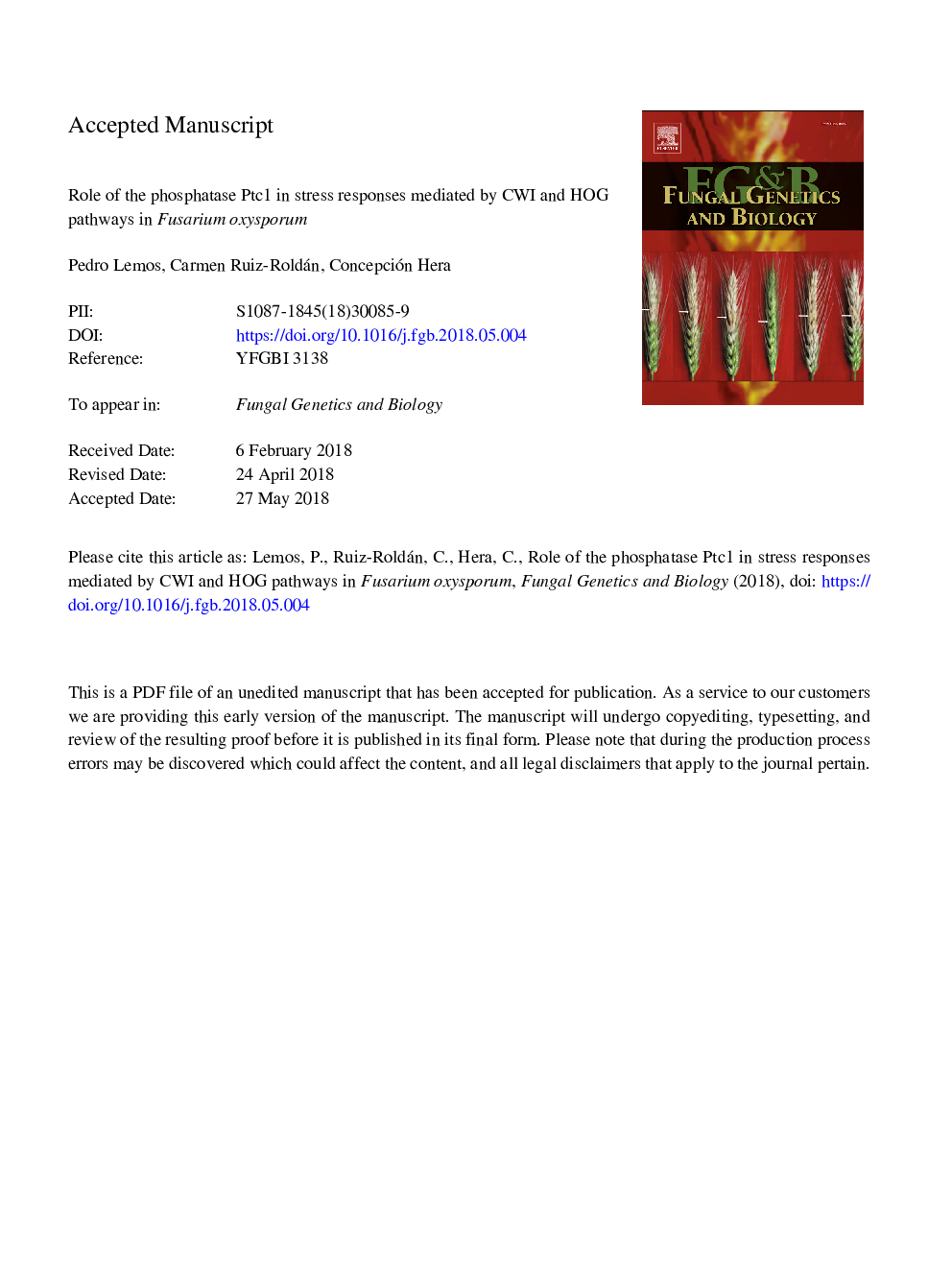| Article ID | Journal | Published Year | Pages | File Type |
|---|---|---|---|---|
| 8470392 | Fungal Genetics and Biology | 2018 | 32 Pages |
Abstract
Reversible protein phosphorylation is crucial for cell signal transduction in stress response. Fusarium oxysporum is a soil inhabiting fungus that can adapt to a wide range of ecological niches and environmental conditions. Three mitogen activated protein kinase (MAPK) cascades have been shown to orchestrate the response of the fungus to external insults such as high temperature, cell wall, oxidative or hyperosmotic stress in F. oxysporum. However, the protein phosphatases that fine-tune phosphorylation levels of different MAPKs in this fungus are unknown. In this study we show that the serine/threonine phosphatase Ptc1 regulates phosphorylation of the high osmolarity glycerol response (HOG) MAPK Hog1 and the cell wall integrity (CWI) MAPK Mpk1. A Îptc1 mutant showed decreased phosphorylation levels of the Mpk1 and was more sensitive to cell wall damaging agents in comparison to the wild type strain. In contrast, this mutant exhibited higher phosphorylation levels of the p38 MAPK Hog1, increased tolerance to osmotic stress compounds and higher expression of genes induced by osmotic stress. Moreover, Îptc1 contained fragmented vacuoles even in absence of the osmotic stressor, supporting the involvement of Ptc1 in the HOG pathway.
Keywords
Related Topics
Life Sciences
Biochemistry, Genetics and Molecular Biology
Cell Biology
Authors
Pedro Lemos, Carmen Ruiz-Roldán, Concepción Hera,
